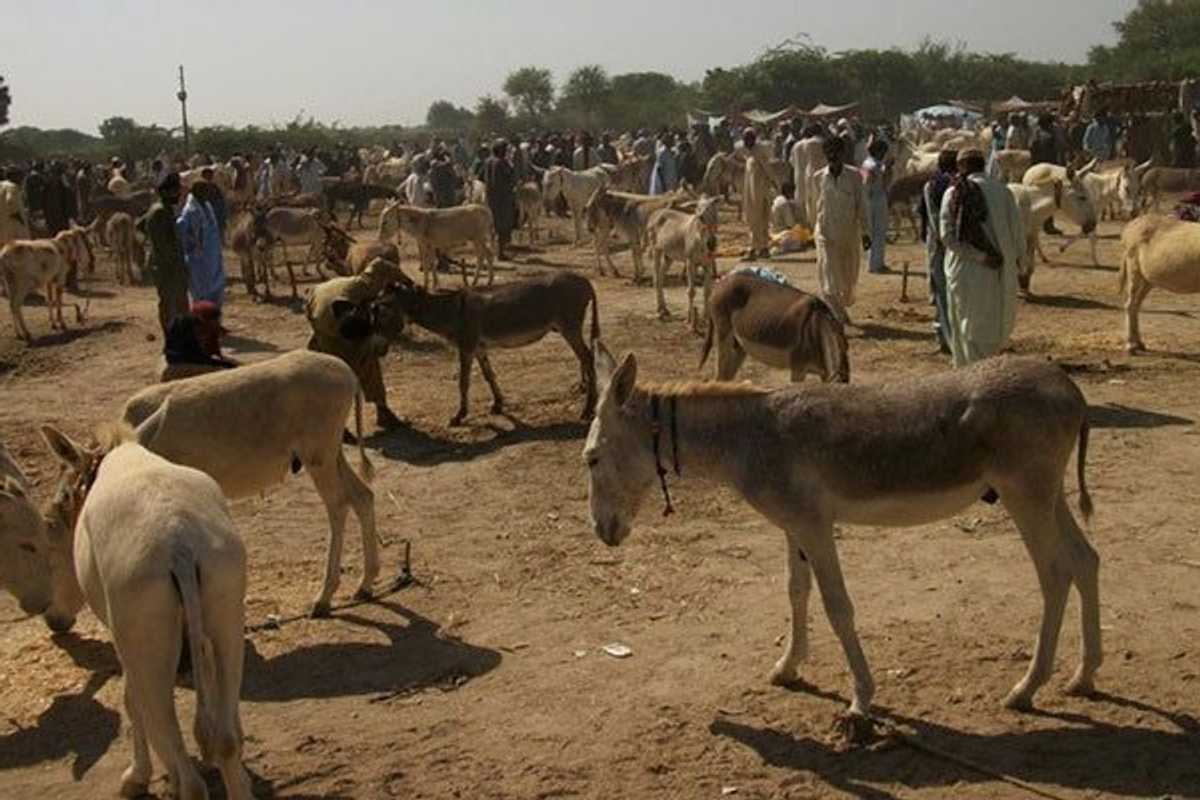Pakistan, China expand cooperation in donkey trade to boost exports
MoU with Chinese companies outlines plans to develop donkey breeding farms, research centers, training programs in Pakistan

Javed Hussain
Correspondent
I have almost 20 years of experience in print, radio, and TV media. I started my career with "Daily Jang" after which I got the opportunity to work in FM 103, Radio Pakistan, News One, Ab Tak News, Dawn News TV, Dunya News, 92 News and regional channels Rohi TV, Apna Channel and Sach TV where I worked and gained experience in different areas of all three mediums. My journey from reporting to news anchor in these organisations was excellent. Now, I am working as a correspondent with Nukta in Islamabad, where I get the opportunity of in-depth journalism and storytelling while I am now covering parliamentary affairs, politics, and technology.

Export of donkey meat to China is expected to boost Pakistan’s exports and create economic opportunities.
Profit/Pakistan Today
Pakistan has agreed to expand cooperation with Chinese companies to increase donkey production and trade, aiming to tap into growing demand from China for donkey-derived products used in traditional medicine and cuisine.
The decision was announced after Pakistan’s Minister for Industries and Production Rana Tanveer Hussain met with Zhao Fei, Vice President of the China Donkey Industry, in Islamabad earlier this week.
The Chinese delegation described Pakistan as a favorable environment for donkey farming, according to a statement from the Ministry of Industries and Production.
Hussain said Pakistan would allow the Chinese industry to set up donkey farms and export facilities in the Gwadar Export Processing Zone, a strategic port area along the Arabian Sea. A slaughterhouse dedicated to donkey meat exports is already operational in Gwadar, with plans for additional facilities underway.
“The export of donkey meat to China will boost Pakistan’s exports, create economic opportunities, and further strengthen trade ties with China,” Hussain said.
China is seeking reliable sources of donkey hides for ejiao, a traditional gelatin widely used in Chinese medicine and beauty products. The growing demand for ejiao has driven up global competition for donkey skins, with China estimated to require nearly six million hides annually.
Balancing export ambitions
Pakistan, home to around 5.9 million donkeys — the third-largest donkey population globally — is positioning itself as a key supplier. Officials stressed that the breeding of Pakistan’s indigenous donkey breeds would not be compromised. Permission for new farms will be granted only after meeting legal and environmental requirements.
A Memorandum of Understanding (MoU) with Chinese companies, including Dong’e Ejiao, outlines plans to develop breeding farms, research centers, and training programs in Pakistan to industrialize the sector. However, concerns remain over the long-term sustainability of donkey farming, given the animal’s slow reproduction rate and potential risks of overexploitation.
Demand for donkeys in Pakistan has declined in recent decades as modernization reduced their use for transportation. Authorities now see commercial donkey farming as an opportunity to repurpose the country’s donkey population for export markets, particularly under the framework of the China-Pakistan Economic Corridor (CPEC).
While the initiative is expected to generate jobs in breeding, processing, and logistics — especially in Balochistan and Sindh — animal welfare groups and some local stakeholders have expressed reservations about illegal hide trading and the environmental impact of large-scale farms.
The Pakistani government has assured that protocols will be enforced to safeguard local donkey populations and ensure the legal and ethical management of the trade.







Comments
See what people are discussing